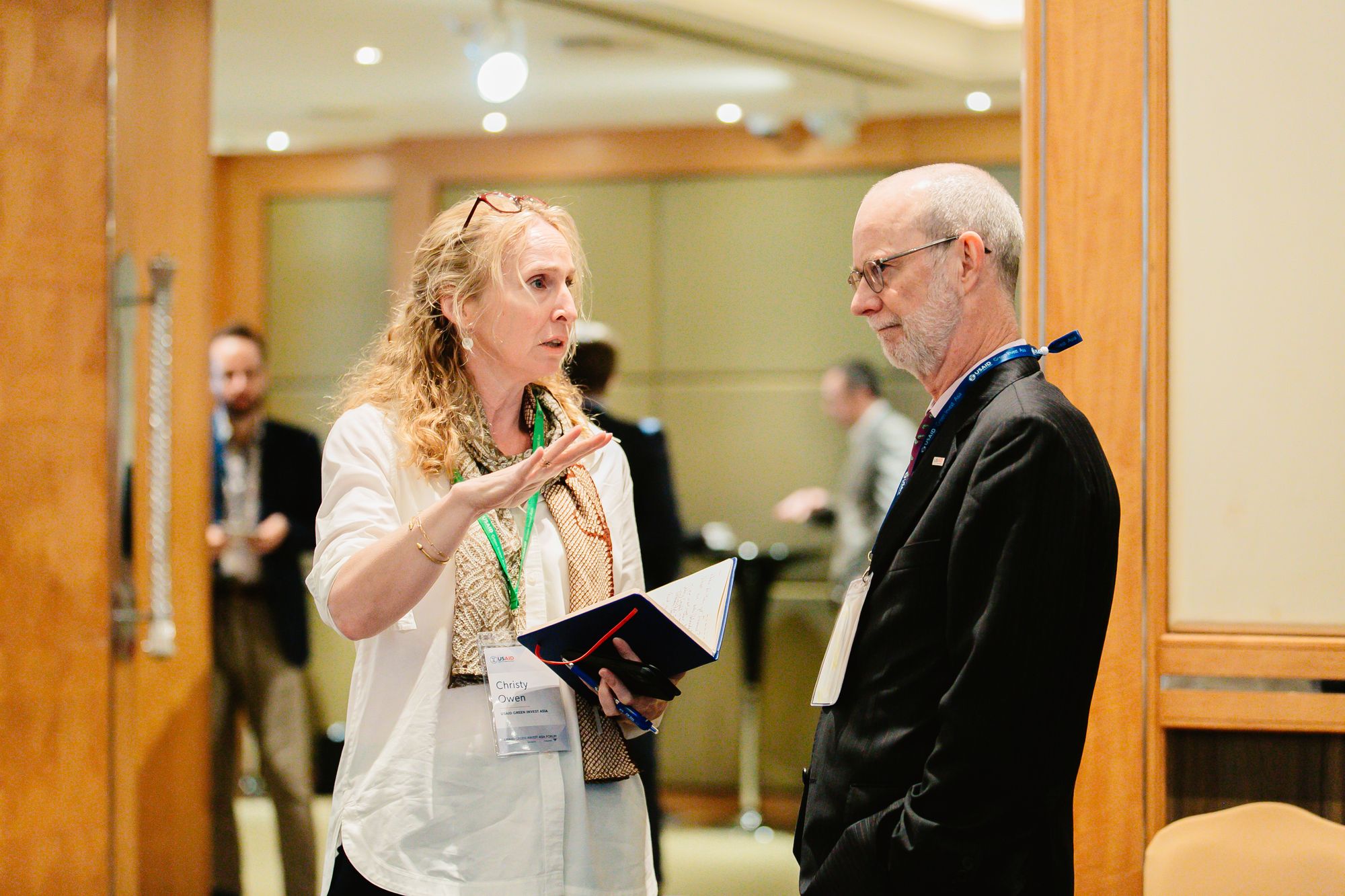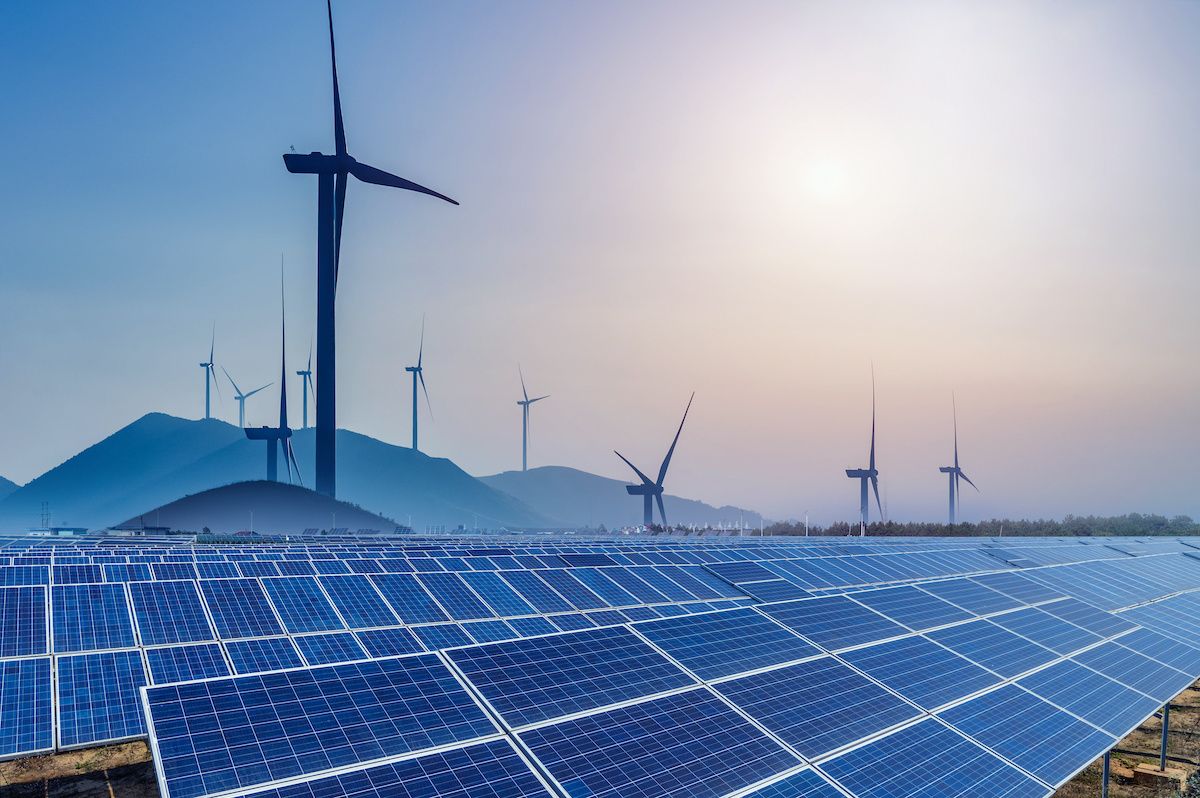Demand for clean energy is rapidly growing in Vietnam. To help mobilize finance for investment in clean energy, the U.S. Agency for International Development-funded Vietnam Urban Energy Security project is working hand in hand with city governments in Danang and Ho Chi Minh City. There is, however, a critical gap between the finance available from the U.S. Development Finance Corporation (DFC) and the needs of project developers wanting to scale up rooftop solar and other distributed energy solutions. Many developers were unable to tap into potential financing because they were unfamiliar with the DFC’s development mandate, capabilities, and requirements.
The project stepped into that gap, hosting matchmaking events and providing transaction advisory services to help the DFC “unlock” transactions and scale up its investment in Vietnam. We sat down with Do Van Anh—Clean Energy Finance Activity Manager—to learn how the project’s work with the DFC is progressing.
How did the relationship with the DFC come about?
“We started with the DFC last year but the actual collaboration just started in April this year when we organized a workshop with the DFC to facilitate investment into distributed energy solutions in Ho Chi Minh City and Danang. We have received enormous interest from project developers and financial institutions in the clean energy market to learn more about finance and investment opportunities.”
Have there been any key successes to the collaboration so far?
“We are facilitating a large investment opportunity between the DFC and a waste-to-energy plant in Vietnam. The project developer plans to install a new waste-to-energy plant with a daily capacity of 1,200 tons and an expected output of 16.2MW of electricity uploaded to the national power grid. In Phase 2, the plant is expected to reach 3,000 tons capacity per day by 2023. We are supporting the developer to conduct an environmental and social impact assessment study using international standards. This will help the project meet the DFC’s environmental and social requirements. We are also in conversation with other developers to create specific scopes of work to facilitate other investment opportunities. The next stage will include providing developers with transaction advisory services, so they can respond effectively to the DFC’s due diligence requirements.”
Have you received any feedback from energy project developers?
“Our developer partners appreciate how the project has helped make it possible for them to work with the DFC by supporting them to understand better how to make their projects viable, and how to successfully raise investment and potentially unlock additional capital. Renewable energy is a relatively nascent sector in Vietnam and new players are not aware of the evolving investment opportunities and funding available, nor the requirements and expectations of different stakeholders. The investment facilitation and technical assistance services the project offers, therefore, are vital in helping potential projects move forward. Some projects may need help conducting specific studies to meet international standards required by international investors, or understanding the policy and regulation frameworks that affect the viability and feasibility of a project. Others may need advice on structuring the deals, preparing investment documents to present to potential investors, or introductions to suitable investors with similar goals and interests.”

Photo: Vietnam Urban Energy Security project/USAID.
Are there any investment opportunities that the project supported in the DFC pipeline now? If so, when do you expect to see the first of these projects get underway?
“The investment screening and due diligence process take time, so we prioritize the projects that are ready to raise investment, and balance that with the time needed for those that require further support to close the transaction. We have several projects in our pipeline; they will progress in the coming months. They are selected based on a checklist scoring methodology until we arrive at a final group of developers for transaction advisory support.”
What do you think will be the main achievements of the project?
“There are still certain knowledge gaps between the requirements and expectations of the DFC and local projects and project developers, which we aim to address. We are in a unique position to offer assistance by procuring experts to perform specialized due diligence, general commercial and financial due diligence, and a range of transaction advisory services useful to advancing the deals. It is not a short and easy journey, but we expect the results will be valuable to all stakeholders, and together we can generate greater impact in Vietnam’s clean energy sector.
“It’s exciting to see progress toward scaling renewables, and helping to find new pathways for Vietnam to continue on its rapid economic development trajectory and go green at the same time.”





